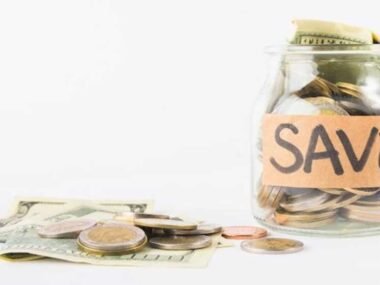Have you ever felt overwhelmed by the weight of your debt? It’s a common feeling. Many people struggle with balancing bills, loans, and unexpected expenses.
Just like how good nutrition and wellness help you feel strong and healthy, taking control of your finances can bring peace and stability to your life. In this blog post, we will guide you through effective debt relief options.
By the end, you’ll have a clear understanding of how to reduce debt and regain control of your finances.
What Is Debt Relief?
Debt relief means finding ways to reduce, reorganize, or eliminate your debt. The goal is to give you breathing room and help you manage your money better. Just as you would seek out healthy food for wellness, taking steps toward debt relief is about making better choices for your financial health.
Whether it’s through paying down balances faster, negotiating with creditors, or getting professional help, debt relief gives you a chance to improve your financial situation.
Why Do People Need Debt Relief?
Life can throw a lot of unexpected financial challenges at us. Job loss, medical bills, or even just overspending can lead to debt. And while it’s normal to have some debt, when it gets too high, it can be stressful.
Debt can impact your daily life, causing anxiety and worry about how to make ends meet. That’s where debt relief comes in. It helps to reduce the stress by allowing you to handle your financial problems in a healthier way.
Types of Debt Relief Options
There are several ways to tackle debt. Each option comes with its pros and cons. Let’s explore the most common ones.
Debt Consolidation
Debt consolidation is a process where you take all your debts and combine them into one loan. This can be helpful if you’re dealing with many different loans or credit cards. Instead of making multiple payments each month, you make one payment to a single lender.
This can help lower your monthly payment and make it easier to keep track of what you owe. Many people find this method helpful because it simplifies their finances.
However, while consolidation can help lower monthly payments, it’s important to be careful about the interest rate. If the new loan has a high interest rate, you might end up paying more in the long run.
Debt Settlement
Debt settlement is another option. With debt settlement, you negotiate with your creditors to pay a smaller amount than what you owe.
Creditors may agree to settle your debt for a lower amount because they know it’s better than getting nothing. This option can be useful if you have a lot of debt that you can’t afford to pay back in full.
However, debt settlement has risks. It can damage your credit score, and not all creditors will be willing to settle. It’s also important to consider any fees associated with settlement services, as they can add to the cost of the process.
Credit Counseling
Credit counseling is when you work with a professional to create a plan to manage your debt. These counselors help you develop a budget, understand your spending habits, and find solutions for reducing debt. Sometimes, credit counseling services can even negotiate with your creditors to lower your interest rates.
This is a good option for people who want to take charge of their finances but need some help organizing their debt. Credit counseling can also teach you valuable skills for managing money in the future.
Bankruptcy
Bankruptcy is a legal process that can help you eliminate or reorganize your debt. It’s usually a last resort because it has long-term effects on your credit.
However, for people who are unable to pay back their debts, bankruptcy may offer a fresh start. There are two main types of bankruptcy for individuals: Chapter 7 and Chapter 13.
Chapter 7 bankruptcy allows for the discharge of most unsecured debts, like credit card balances. Chapter 13 involves creating a repayment plan to pay off some of your debts over several years.
While bankruptcy can give you a break from overwhelming debt, it’s important to carefully consider the long-term impact on your finances before choosing this option.
How to Choose the Right Debt Relief Option?
Choosing the right debt relief option depends on your personal situation, so it’s important to assess your total debt, income, and ability to pay it off. To make an informed decision, ask yourself a few key questions, such as how much debt you have, how many creditors you owe money to, whether you can afford to make monthly payments, and if you want to avoid long-term damage to your credit score.
By answering these questions, you can better understand which option suits your needs. If you’re unsure, speaking with a financial advisor or professional can provide personalized advice to guide you through the process.
For example, if you live in Texas, you may be able to find local resources and programs designed to help with debt relief in San Antonio. Local companies and nonprofit organizations often offer free consultations to help you understand your options and take the first steps toward financial recovery.
It’s always good to start local, as they may know specific services that are available in your area.
The Importance of Creating a Budget
Once you’ve decided on a debt relief option, the next step is creating a budget. A budget is an essential tool for managing your money because it helps you track your income and expenses while also allowing you to set aside money for paying off your debt.
Sticking to a budget ensures you avoid falling back into debt and helps keep you on track toward financial peace. When creating your budget, make sure to include all your monthly income, fixed expenses such as rent and utilities, variable expenses like groceries and transportation, and a portion of money for debt repayment.
Enjoy Financial Freedom Using This Guide
Debt relief is an essential step toward achieving financial peace. With the right strategies, you can reduce your debt and regain control over your finances. Whether you choose debt consolidation, credit counseling, or other options, the most important thing is to take action.
By doing so, you can build a brighter and more secure future for yourself. Remember, taking control of your finances now can lead to a stress-free life later. The road to financial peace may take time, but each step you take brings you closer to lasting stability.
Did you like this guide? Great! Browse our website for more!










